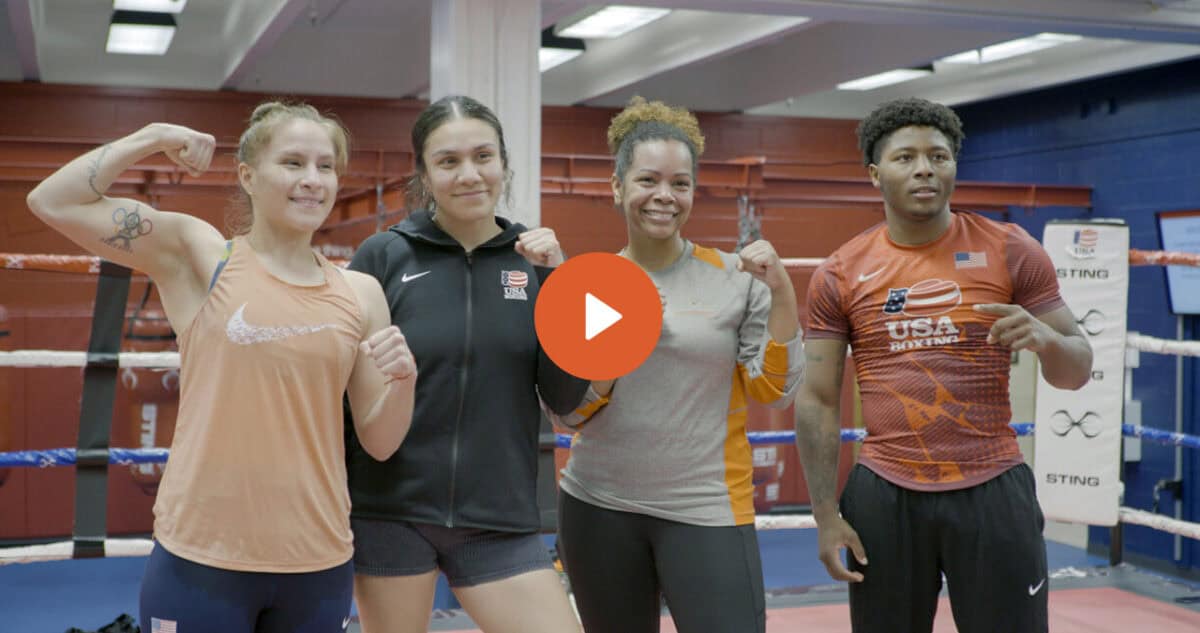How Coaches and Athletes Can Deal with "Cuts"
Regardless of the sport, to build a championship-winning team takes top athletes. Unfortunately, this usually means that not everyone who tries out is up to the standard. Although in most cases it’s necessary, making cuts is the least appealing aspect of team-building for coaches. And it’s even harder for players; not only do they miss out on a chance to play, they have to deal with feelings of rejection and inadequacy. (Athletes see also: Tryouts Are a “Head Game” and Tips on How to Make Your Basketball Team.)
If you find yourself going through this heartbreak, here are some thoughts for dealing with the cut process—for both coaches and players.
Coaches
I’m not suggesting you engage in a detailed, developmental discussion with every player you cut. However, if a kid takes the initiative to approach you for your evaluative opinion, take a few minutes to provide him or her with some honest, quality feedback. Here are some tips:
Make your feedback actionable
There’s nothing worse than being told you’re being cut because you’re too small. That’s like telling a kid you’re cutting him or her because he or she has blue eyes. As coaches, we can do better than that. Let’s be honest; if the kid could flat-out play, his or her stature would probably be less of a factor. Be willing to provide the athlete with developmental feedback that includes one or two action items, like improved ball handling or shooting mechanics. Give the kid something that is within his or her control.
Point out the player’s current strengths as well as where he or she needs to improve
This gives the player some goals to work on in preparation for tryouts the following season. Wish the athlete well in the coming season, and indicate that you would like to see him or her try again. But don’t make any promises, like saying, “if you work hard you will make the team next year.”
Speak to the player in person
A phone call is second best. The athlete deserves your personal attention.
Don’t post a cut list
The athlete you’re cutting deserves to hear it from you, not via an impersonal public message board.
Be prepared to deal with the parents
This is often the most difficult challenge. Most parents lack objectivity when it comes to their kids, because they see them with their hearts. If approached by parents, be willing to engage them in a discussion about their son or daughter. Just keep it objective and non-comparative. Avoid being argumentative (even if they are), and provide the same type of feedback you gave to their child.
Avoid comparing the player you cut with other players on the team
Limit your developmental feedback to the player’s own self-improvement.
Players
There is absolutely nothing fun about not making the team. But if you face this unfortunate circumstance, consider the following suggestions.
Talk to the coach
Get an accurate understanding of your strengths and weaknesses by asking what the coach thinks you do well and where you can improve. Learn what he or she is looking for in athletes.
Consider how serious are you about this sport
Are you dedicated enough to put in the work and develop yourself in order to be more competitive for a spot on next year’s team?
Consider taking your talents elsewhere
Perhaps there is another sport or activity you would enjoy and even excel at. Use the open season to explore other opportunities.
Don’t blame the coach and don’t take it personally
The coach’s goal is simple: he or she is trying to select players who represent the best fit for the program.
If it’s a school team, consider playing at the community or recreational level
This will help you to continue developing your talents for next year’s tryouts.
Consult a professional
If you’re really serious about improvement, engage a professional who can provide you with sport-specific skills training, strength and conditioning and/or nutrition advice.
RECOMMENDED FOR YOU
MOST POPULAR
How Coaches and Athletes Can Deal with "Cuts"
Regardless of the sport, to build a championship-winning team takes top athletes. Unfortunately, this usually means that not everyone who tries out is up to the standard. Although in most cases it’s necessary, making cuts is the least appealing aspect of team-building for coaches. And it’s even harder for players; not only do they miss out on a chance to play, they have to deal with feelings of rejection and inadequacy. (Athletes see also: Tryouts Are a “Head Game” and Tips on How to Make Your Basketball Team.)
If you find yourself going through this heartbreak, here are some thoughts for dealing with the cut process—for both coaches and players.
Coaches
I’m not suggesting you engage in a detailed, developmental discussion with every player you cut. However, if a kid takes the initiative to approach you for your evaluative opinion, take a few minutes to provide him or her with some honest, quality feedback. Here are some tips:
Make your feedback actionable
There’s nothing worse than being told you’re being cut because you’re too small. That’s like telling a kid you’re cutting him or her because he or she has blue eyes. As coaches, we can do better than that. Let’s be honest; if the kid could flat-out play, his or her stature would probably be less of a factor. Be willing to provide the athlete with developmental feedback that includes one or two action items, like improved ball handling or shooting mechanics. Give the kid something that is within his or her control.
Point out the player’s current strengths as well as where he or she needs to improve
This gives the player some goals to work on in preparation for tryouts the following season. Wish the athlete well in the coming season, and indicate that you would like to see him or her try again. But don’t make any promises, like saying, “if you work hard you will make the team next year.”
Speak to the player in person
A phone call is second best. The athlete deserves your personal attention.
Don’t post a cut list
The athlete you’re cutting deserves to hear it from you, not via an impersonal public message board.
Be prepared to deal with the parents
This is often the most difficult challenge. Most parents lack objectivity when it comes to their kids, because they see them with their hearts. If approached by parents, be willing to engage them in a discussion about their son or daughter. Just keep it objective and non-comparative. Avoid being argumentative (even if they are), and provide the same type of feedback you gave to their child.
Avoid comparing the player you cut with other players on the team
Limit your developmental feedback to the player’s own self-improvement.
Players
There is absolutely nothing fun about not making the team. But if you face this unfortunate circumstance, consider the following suggestions.
Talk to the coach
Get an accurate understanding of your strengths and weaknesses by asking what the coach thinks you do well and where you can improve. Learn what he or she is looking for in athletes.
Consider how serious are you about this sport
Are you dedicated enough to put in the work and develop yourself in order to be more competitive for a spot on next year’s team?
Consider taking your talents elsewhere
Perhaps there is another sport or activity you would enjoy and even excel at. Use the open season to explore other opportunities.
Don’t blame the coach and don’t take it personally
The coach’s goal is simple: he or she is trying to select players who represent the best fit for the program.
If it’s a school team, consider playing at the community or recreational level
This will help you to continue developing your talents for next year’s tryouts.
Consult a professional
If you’re really serious about improvement, engage a professional who can provide you with sport-specific skills training, strength and conditioning and/or nutrition advice.











